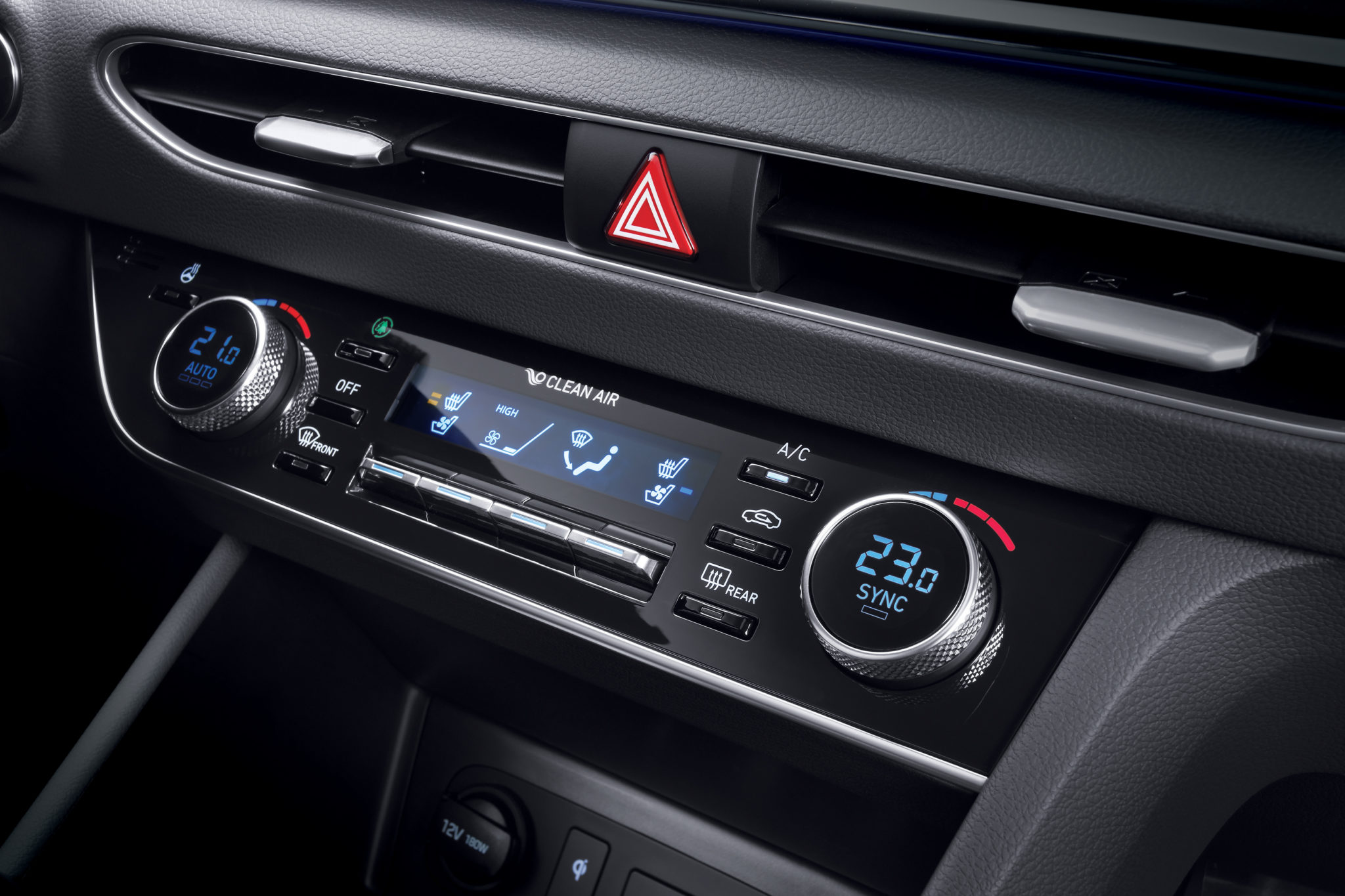window.dataLayer = window.dataLayer || []; function gtag(){dataLayer.push(arguments);} gtag('js', new Date()); gtag('config', 'G-0RQ7VDBZ87');

Hyundai Motor Company has developed a new air conditioning technology that produces clean air in the cabins of Hyundai vehicles.
With sanitation and air quality at the top of everyone’s minds, Hyundai is delivering a tangible solution for its drivers with three new air conditioning technologies. The three new air quality control systems are titled, After-Blow, Multi-Air Mode, and Fine Dust Indicator.
Each of the three air conditioning technologies has a specific focus to help keep the air quality within the cabin as clean as possible. After-Blow keeps evaporator dry to suppress mold growth. Multi-Air Mode disperses air to reduce direct air contact. Fine Dust Indicator displays air quality information in real-time.
The new air-conditioning technology will be made available on the next generation of select Hyundai, Kia, and Genesis vehicles.
Take a look at the following informational video from Hyundai Motor Company to learn more about how these technologies work.
One of the biggest takeaways from the video is how each air cleaning system is laser-focused on one task. For more information on the details of each, Hyundai Motor America shared the following information.
‘After-Blow’ dries the condensate on the evaporator and suppresses mold growth in the air-conditioning system, which can cause an odor during hot weather.
After the engine is turned off and the condensate on the evaporator drains naturally for about 30 minutes, ‘After-Blow’ activates for 10 minutes to dry the evaporator and any condensate leftover in the air passage. The air-conditioning system automatically allows an influx of outside air during this time to prevent humidity from building up.
The technology uses an intelligent battery sensor (IBS) to monitor the battery and stops functioning when the battery is low, allaying any concerns about battery discharge. It also de-activates when the air conditioning system is not in use for a certain period of time, or when the outside temperature is low.
‘Multi-Air Mode’ uses multiple vents for air conditioning and heating to create a more pleasant indoor environment with a gentle wind.
When this mode is activated, the air is dispersed to the newly added multi-air slots in the driver and passenger seats in addition to the normal air vents. The overall wind volume remains the same, but the dispersion of wind reduces direct air contact and softens the air.
This mode can be switched on and off based on the preference of the driver.
‘Fine Dust Indicator’ measures the air inside the vehicle in real-time and delivers digitized information, allowing the driver to better manage the air quality.
The indicator displays the concentration and pollution level of ultrafine particles (PM 2.5) inside the vehicle using integer numbers and colors for better visibility to the user: blue for 0 to 15 μg/m3, green for 16 to 35 μg/m3, orange for 36 to 75 μg/m3, and red for 76 μg/m3 or higher.
If the level of ultrafine particles exceeds 36 μg /m3 while the function is active, the air-cleaning mode will run to purify the air in the vehicle. The air-cleaning system automatically sets the air volume between 3 and 8 and switches to air-recirculation mode and activates the air conditioning system to reduce indoor humidity. If the air does not improve in air-cleaning mode, it can also serve as a reminder to the driver to replace air-conditioner filters or to clean contaminated seats and mats.
This post was published on July 29, 2020
Napleton News presents the Toyota 4Runner Video Review The Toyota 4Runner has amazed those in… Read More
Volkswagen Atlas Review and walkaround video The new Volkswagen Atlas full sized SUV is a… Read More
The 2024 Kia Sorento Hybrid is the best of several worlds. It’s a family SUV.… Read More
The Subaru Crosstrek started as a gimmick for the brand, but quickly became one of… Read More
Its parent company has a long history of building strong, potent and powerful vehicles for… Read More
There are many cars on the road today like the Cadillac CT4-V. But the question… Read More